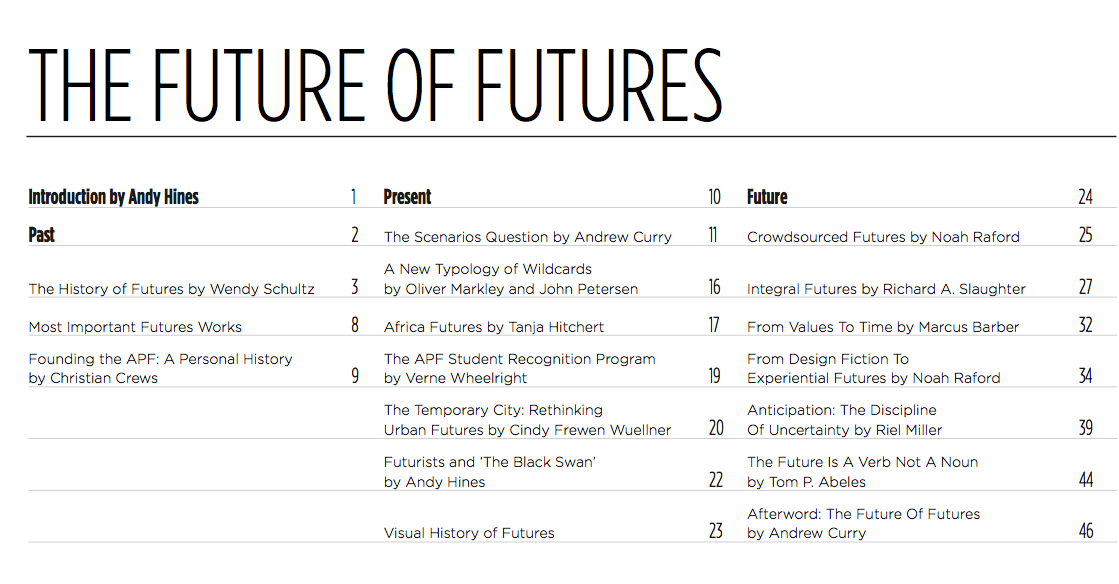Future Fabulators
The (various) Futures Of Futures
What are the possible futures for the field of futures studies?
If the field of futures were invented today, it asks, what would it look like? What would its intellectual foundations be? Who would it serve and influence? And how would its ideas and insights be put into practice? I suggest that a brand new field that concerned itself with the future — call it Future s 2.0 for simplicity's sake — [It] would have four notable features. First, it would be designed to deal with problems characterized by great complexity, contingency, uncertainty and urgency — properties shared by the critical problems of the 21st century. Second, it would draw on experimental psychology and neuroeconomics to counter systematic biases that affect our ability to think about and act upon the future. (Sanfey et al., 2006) Third, would incorporate tools like social software, prediction markets, and choice architectures into its research methods. Finally, it would seek to lengthen “the shadow of the future” (Axelrod, 1984) of everyday choices, and influence the future by encouraging small cumulative changes in the behaviors of very large numbers of people over the course of years or decades. in “Futures 2.0: Rethinking the Discipline” http://askpang.typepad.com/articles/pang-futures21.pdf
- “deal with problems characterized by great complexity, contingency, uncertainty and urgency”
- “draw on experimental psychology and neuroeconomics to counter systematic biases that affect our ability to think about and act upon the future”
- “incorporate tools like social software, prediction markets, and choice architectures”
- “lengthen “the shadow of the future” (Axelrod, 1984) of everyday choices, and influence the future by encouraging small cumulative changes in the behaviors of very large numbers of people over the course of years or decades”
Future of Futures
publication by AFP, edited by Andrew Curry. https://www.zotero.org/groups/future_fabulators/items/itemKey/93SFKUVI
Table of Contents:

